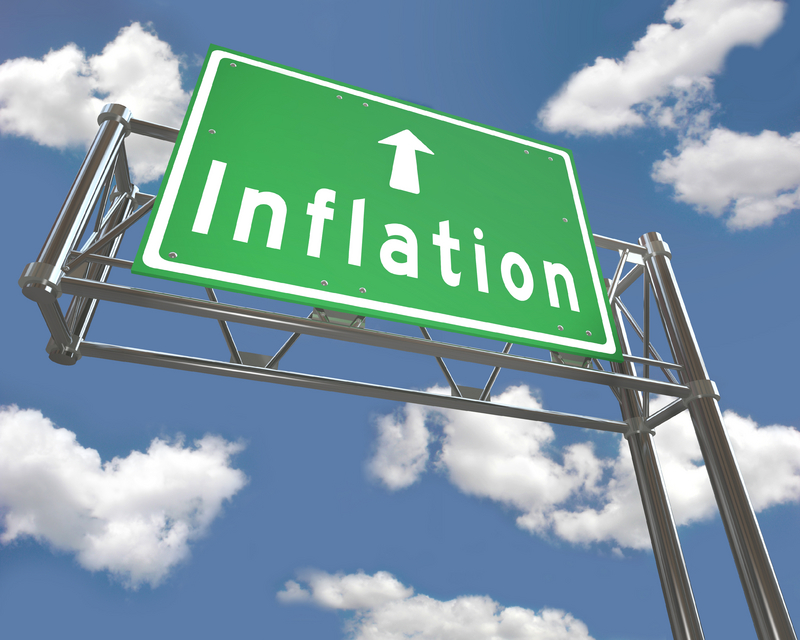Household Bills
Inflation jumps to 5.1% – the highest in a decade

The Consumer Prices Index (CPI) rose by 5.1% in the 12 months to November 2021, up from 4.2% in October, according to the Office for National Statistics.
This is the highest CPI 12-month inflation rate since September 2011, when it stood at 5.2%. On a monthly basis, CPI increased by 0.7% in November 2021, compared with a fall of 0.1% in November 2020.
The Consumer Prices Index including owner occupiers’ housing costs (CPIH) rose by 4.6% in the 12 months to November 2021, up from 3.8% in the 12 months to October. Given that the owner occupiers’ housing costs (OOH) component accounts for around 19% of the CPIH, it is the main driver for differences between the CPIH and CPI inflation rates.
Petrol prices hit a record high in November, used car prices were up almost a third in seven months, and gas and electricity prices rose at their fastest rate for more than decade.
Average petrol prices stood at 145.8 pence per litre in November 2021, compared with 112.6 pence per litre a year earlier. The November 2021 price is the highest recorded. In November 2020, lockdown meant that all but essential travel was discouraged. At that point, average petrol prices fell by 0.6 pence per litre on the month.
Lewis Shaw, founder of Shaw Financial Services, said: “Welcome to the winter of discontent. Alongside raging inflation and its impact on households, there is a looming threat of another lockdown to contain the Omicron variant and we now have a scandal in Number 10, just when we needed strong leadership most. Sadly, things look as though they’re set to get worse.
“The data on Covid looks awful, and raising the base rate will cause sentiment to deteriorate even further. To bring inflation under control we don’t need rates to rise, we need freedom of movement back. I know that may not be popular, but it’s true. The safest option for now is to sit tight, get some money printed and wait for things to settle down.”
According to the ONS, the contribution to inflation from second-hand cars has also changed significantly since the beginning of 2020. With the onset of the coronavirus pandemic, there were reports of increased demand as people sought alternatives to public transport. From October 2020, the contribution to the 12-month rate gradually fell back to an upward 0.01 percentage points in April 2021. It then rose again to 0.32 percentage points in November 2021, the largest contribution from second-hand cars since the start of the National Statistic series in January 2006.
The ONS also calculated that the contribution from housing and household services increased from 1.23 percentage points in October 2021 to 1.28 percentage points in November, the largest contribution from this division since early 2009.
This is largely due to increases in energy prices following the increase in the energy price cap, which changed on 1 October 2021.
Sarah Coles, senior personal finance analyst at Hargreaves Lansdown, said: “Anyone on a tariff linked to the higher price cap is well aware of painful energy price hikes. Gas and electricity prices rose at the same alarming rate as last month: the price of electricity is up 18.8% in a year, and gas is up an incredible 28.1%. They’re rising faster than at any other time since 2009, so it’s no wonder so many people are taking drastic steps to cut down on energy use this winter.”
Steven Cameron, pensions director at Aegon, said: “Inflation has risen sharply in recent months and the latest rate of 5.1% is the highest in a decade, already hitting the ‘peak’ forecast for spring 2022, and almost reaching the highest level over 20 years of 5.2%. This will add to already heightened concerns regarding loss of purchasing power from cash savings and fixed incomes. Individuals will be hoping that such high price rises are not sustained over the long-term to avoid the damaging effects of inflation being compounded. Millions of people are already feeling the squeeze in the cost of living, particularly during a festive period when disposable incomes are often at their most stretched.
“Those holding large amounts in cash savings are particularly at risk from high inflation. While Omicron concerns are likely to defer a Bank of England increase in interest rates, any increase eventually passed on to savers is likely to be small and more than outweighed by inflation decreasing purchasing power.